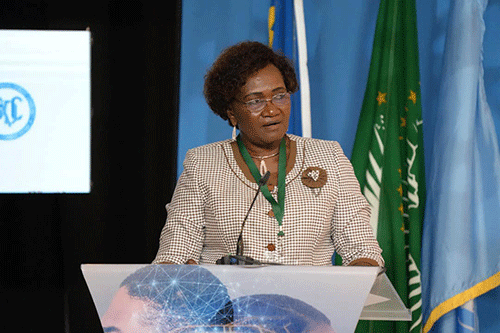Namibia, and more broadly Africa, can position itself to reap the benefits of artificial intelligence if it equips tomorrow’s workers with the skills needed to develop solutions.
These are the sentiments of Ndapandula Nakashole, assistant professor of Computer Science at the University of California, San Diego, where she is a member of the artificial intelligence group and the Jacobs School of Engineering.
Nakashole, who recently scooped the National Science Foundation (NSF) Career Award, said different parties could facilitate this process, including the government, private sector and individuals.
The NSF Career award is a grant awarded to young professors who are novice in their careers.
It is sponsored by the United States government-funding agency, the National Science Foundation (NSF).
The grant is meant to help junior faculty get their research off the ground.
“I started Okalai as an individual who wants to contribute towards increasing AI participation in Namibia and neighbouring countries. I am doing this by offering free AI classes to Namibian students. The goal of Okalai courses is to get people started in AI, providing the foundations, and allowing people to see if this is someone they want to pursue,” shared Nakashole.
She said “the goal of AI is to equip computers with the ability to do tasks that humans can do – that is, to enable machines to exhibit the kind of intelligence seen in most adult humans. The human brain works in ways that are not yet well-understood by scientists. Replicating human intelligence has turned out to be an incredibly difficult endeavour. Many of the things that we, humans, do, such as walking or talking, are difficult for a computer”.
She said the award means a lot, and it is an honour to receive it, adding that starting to run a research group requires resources.
“The funds from this grant are an indispensable resource; one can use the funds to obtain research equipment, recruit PhD students, and disseminate research results, which often involves travelling to attend conferences around the world,” Nakashole said.
The Omungwelume-born scientist says her interest in AI was amplified when she was doing research into search engines, which was the topic for her undergraduate Honours thesis at the University of Cape Town.
“I then extended that work into a Master’s thesis. When I started my PhD in Germany, the research group I joined had traditionally worked on information retrieval and databases – but at that time, it was becoming clear to many that the next generation of search engines would need to leverage AI, in particular Natural Language Processing (NLP), to become more intelligent, give precise answers to questions, etc. Methodologically, one needed to go beyond keyword matching. It was a natural transition to move into AI,” she highlighted.
Namibians have of late developed an interest in AI, with Nakashole asserting that a lot of talented young Namibians may not realise their full potential because of so many obstacles.
“One can reach out to people and organisations that might have the resources to help achieve one’s dreams, both in Namibia and abroad. When one tries this often enough, something will work out,” she said.
To those who want to pursue AI, join next year for free AI courses.
Visit okalai.org for updates regarding 2023 dates and venue. – psiririka@nepc.com.na


